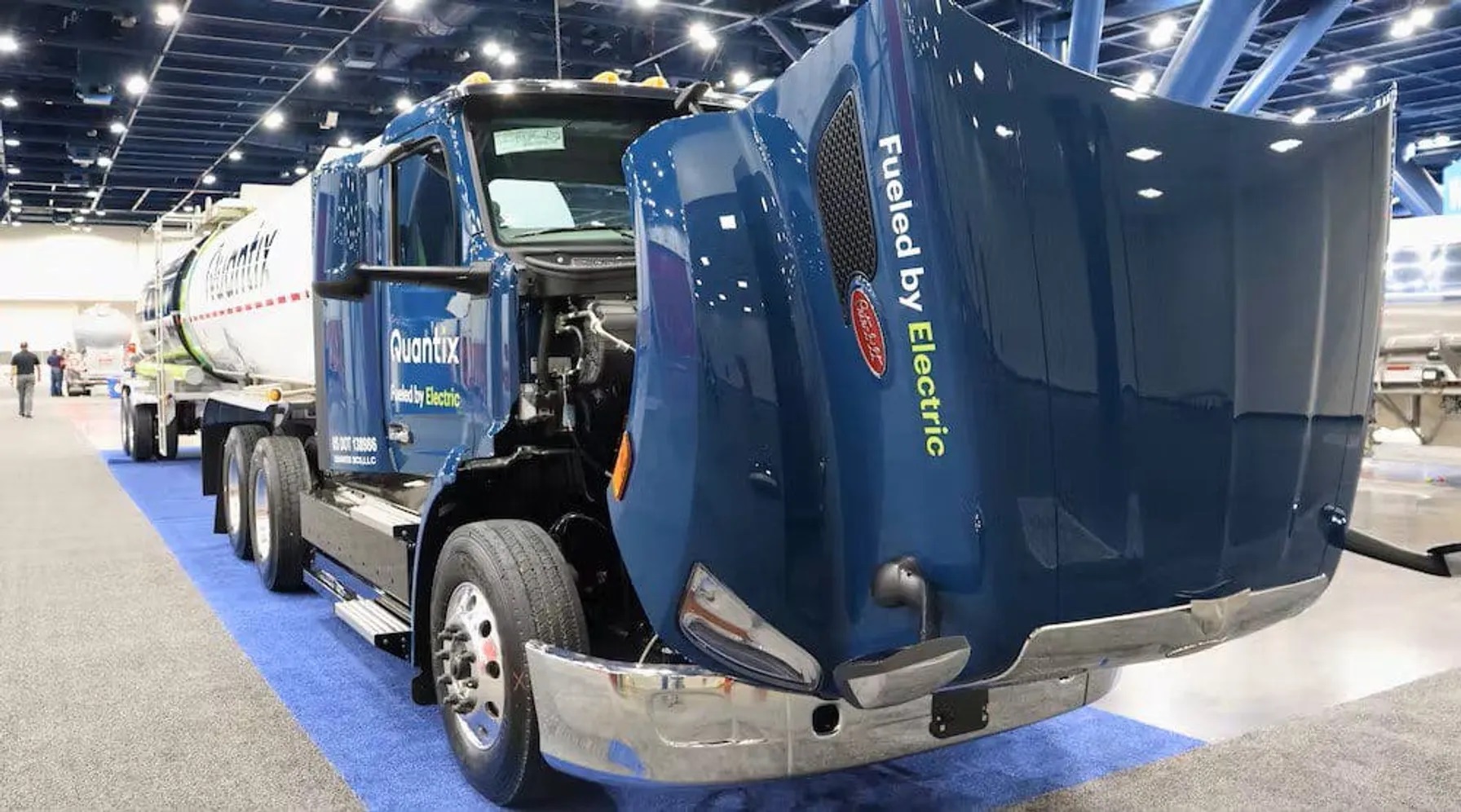Source: Bulk Transporter
Cox Petroleum president and CEO Jeremy Mairs captured in one sentence what many tank truckers were thinking while listening to Quantix’s Troy Basso and Peterbilt’s Dusty Garland discuss their experience with fleet electrification.
“I don’t like anything you have to say,” he summarized, as diplomatically as possible.
“But I’m sitting here like, ‘OK, what do I need to do?’ I’m trying to be a smart businessman. But how much do [battery-electric trucks] cost? Are my customers going to appreciate getting 20% less product every load at a higher rate [because of the battery’s weight reducing payload capacity]? And I’m going to be delivering fuel in an electric vehicle, so when I try to pull into a loading rack, are they even going to let me in?”
All good questions, to be sure, and plenty more are worth asking.
Unfortunately for Mairs, the answers aren’t as abundant—and even if they were, it doesn’t matter.
Cox operates 150 trucks in California, where the California Air Resources Board is leading the charge on zero-emission vehicle (ZEV) adoption with the Advanced Clean Trucks (ACT) regulation and Advanced Clean Fleets (ACF) companion rule, which sets the path to meeting California Gov. Gavin Newsom’s executive order to end the sale of internal combustion engine (ICE) vehicles by 2035, and make California a “carbon-neutral” state by 2045.
The first milestone in the ACF rule’s aggressive ZEV phase-in schedule is Jan. 1, 2025.
“The expectation is by the spring of 2023, they’re going to pass this regulation, in largely the same version we’ve seen, with a few modified items, like refined definitions, and maybe clarified or additional detail in the exemptions, but without changing the overall effect of this rule, and it’s going to be hard to make everybody happy,” Sean Cocca, policy compliance director with clean transportation and energy consultancy TRC, told Bulk Transporter after CARB’s public hearing in October.



